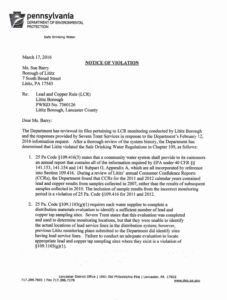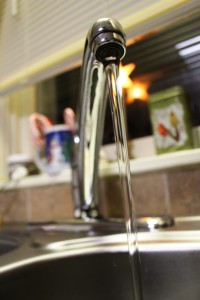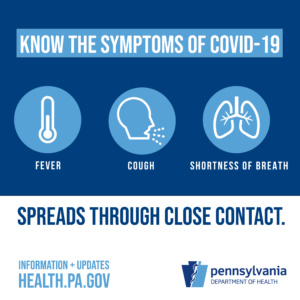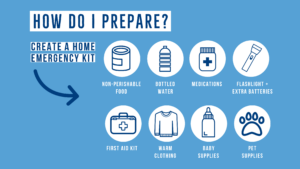State Says Lititz Borough Violated Drinking Water Laws
State: Multiple Violations of Lead and Copper Rule in Lititz Borough
(Lititz, PA-LititzDailyNews.com)—The Pennsylvania Department of Environmental Protection says that Lititz Borough violated state and federal regulations that govern testing for lead in drinking water. The state recently issued a notice of violation to the borough, which was obtained this week by LititzDailyNews.com.
“After a thorough review of the system history, the department has determined that Lititz violated the Safe Drinking Water Regulations,” states the March 17 notice sent to Lititz Borough. The notice also identifies failures on the part of Severn Trent Services, a private company that operates the Lititz water system.
RELATED STORY: AS THEY VIOLATED LEAD LAWS, BOROUGH AND TOWNSHIP RECEIVED WATER AWARD FROM EPA
The Pennsylvania Department of Environmental Protection says that Lititz Borough reported incorrect lead test results to residents over a two-year period, failed to identify appropriate tap water sample sites, and failed to tell the state why it chose to test different homes from those sampled in previous years. A borough home that tested at extremely high levels for lead in 2010 was not retested in 2013.
In its letter, the state outlined corrective procedures for Lititz Borough, but did not impose a fine or other enforcement action, although it may yet do so.
 RELATED STORY: STATE: WARWICK TOWNSHIP VIOLATED LEAD IN WATER LAWS
RELATED STORY: STATE: WARWICK TOWNSHIP VIOLATED LEAD IN WATER LAWS
The borough says it is taking action in response to the notice from the state.
“Steps are being taken to resolve violations issued to the borough regarding the Lead and Copper Rule,” wrote borough manager Sue Barry to LititzDailyNews.com in an email earlier this week.
Lead is known to cause neurological damage in infants, children, and developing fetuses. It also poses serious health risks to other age groups. State and federal agencies agree that there is no safe level of lead in drinking water.
“The fact that Severn Trent did not do its sampling protocol properly, and was called out by the state, is an important victory for the people of Lititz in holding the water company accountable,” said Paul Schwartz, a Washington, D.C.-area water expert who calls the state’s notice “a critical step in protecting the public health.”
The state investigation was prompted by a series of stories on lead in Lititz drinking water published by LititzDailyNews.com that exposed questionable testing practices, erroneous reports sent to residents, and high lead levels in certain homes. After the first story appeared and the publication requested test results under the Right-to-Know Law, Severn Trent notified state officials that the company had failed to accurately report lead in water data to Lititz consumers.
The Pennsylvania Department of Environmental Protection is responsible for overseeing and enforcing drinking water regulations, yet Lititz Borough’s misleading Consumer Confidence Reports and other violations apparently went unnoticed by state officials for over five years.
A state spokesperson acknowledged in a February email that while the state computers analyze test results reported to the state, the consumer confidence reports to customers are only “spot checked” for accuracy.
“The reason the notice of violation has now been issued is not because the Department of Environmental Protection has been looking closely at the water utility’s implementation of the law,” said Yanna Lambrinidou, a national water policy expert who is a colleague of Marc Edwards, the Viriginia Tech engineer who was instrumental in exposing high lead levels in Flint’s water. “It’s because the agency is reacting to a reporter doing the work that state agencies and the utilities need to be doing.”

Water runs in a Lititz Borough home where extremely high lead levels were discovered. The high lead levels were omitted from annual water reports to residents. Photo by Lynn Rebuck/LititzDailyNews.com
Federal and state regulations require Lititz Borough to identify and test tap water in homes that are at highest risk for lead contamination.
Lead leaches into water as it enters homes through lead service lines, lead connections, or copper pipes with lead solder. Corrosive source water can cause the lead to be released from pipes into homes, like it did in Flint, Michigan.
Lititz Borough water was identified as corrosive in the early 1990’s when mandatory testing for lead in water began. In initial testing of Lititz Borough homes, the amount of lead that came out of over ten percent of the taps was over the federal limit.
As a result, the borough was required by state and federal law to treat the water to try to keep lead from being released into borough homes.
“The borough began adding a corrosion control product in1994,” said Barry by email. That corrosion control continues today in Lititz Borough in an effort to keep lead from entering the drinking water in Lititz homes. Warwick Township buys water from Lititz Borough and delivers it to township customers in Lititz.
In order to determine which homes are at highest risk for lead at the tap, water suppliers must evaluate the materials and look for lead in their systems, then report those findings to the state prior to testing.
According to the state, former borough water operators knew the location of lead service lines, but Severn Trent couldn’t find them.
“Severn Trent states that this evaluation was completed and used to determine monitoring locations, but that they were unable to identify the actual locations of lead service lines in the distribution system,” according to the notice of violation issued by the state.
The state directed Lititz Borough to determine how former water operators found the lead pipes. According to manager Sue Barry, hundreds of lead service connections have been found.
“A recent system evaluation has determined that 304 service connections have lead goose necks,” wrote Barry in an email to LititzDailyNews.com.
Since the borough is required to test for lead in tap water again this year, the state has required that it submit a detailed plan of where it intends to sample prior to June 1, the start of the testing period.
After the samples are analyzed, the law requires that the results be accurately reported to consumers. The state found that for two years, Lititz Borough failed to do that.
“During a review of Lititz’ annual Consumer Confidence Reports (CCRs), the department found that CCRs for the 2011 and 2012 calendar years contained lead and copper results from samples collected in 2007, rather than the results of subsequent samples collected in 2010.”
Water suppliers are required to certify to the state that they have distributed the report to consumers, and that it is accurate. Borough manager Barry signed off on the accuracy of those faulty reports to the state. The notice of violation instructs the borough to notify residents in the 2015 Consumer Confidence Report of the previous reporting errors from 2011 and 2012.
Lambrinidou believes that Lititz residents need to take an active part in what should be a transparent lead testing process, “so that the people of Lititz can finally receive information that is reliable and will allow them to make informed decisions to about how to protect themselves from lead in water.”
LititzDailyNews.com will be holding a free event in Lititz to provide information to residents about testing for lead in drinking water. Click here to get on the list to receive event details, and subscribe for FREE to LititzDailyNews.com for upcoming stories about lead safety. For tips on how to reduce your exposure to lead, visit the Lead in Drinking Water page of the Pennsylvania Department of Environmental Protection.
Note: This story was updated to include information about Lititz Borough being required to put chemicals in the water to control corrosion, to include information about the distribution of Lititz Borough water to Warwick Township customers in Lititz, and to include the degree of analysis of consumer confidence reports by the state.
If you live in Lititz Borough, Warwick Township, Rothsville, or nearby communities and have a child who has tested with an elevated blood lead level, please email [email protected].












